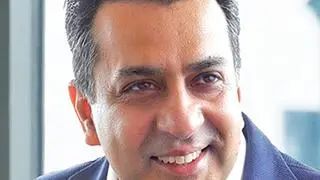As it feels the heat in the US, the IT industry has revived its plans to tap non-English markets. The industry is in the process of talking to State governments and engineering colleges to launch foreign language courses as it sets its eyes on the Japanese, African, Korean and Chinese markets.
The Electronics and Computer Software Export Promotion Council (ESC), which is sponsored by the Union Government, says six languages cover 80 per cent of the world GDP and 160 countries.
“Apart from English, the Chinese, Japanese, Spanish, French and Arabic languages dominate the markets. So far we are focussing on the English-speaking markets, with a focus on the North America. This needs to be changed,” Prasad Garapati, Chairman of ESC, has said.
“If you know French, you can tap 29 countries. If you know Spanish, you can cover another 29 countries. Arabic is spoken in 22 markets,” he said.
Garapati is in the city for the two-day IndiaSoft event, being attended by 400 delegates from India, Africa, Nepal and the Gulf region.
Eyeing newer marketsNalin Kohli, IndiaSoft Committee of ESC, said the country would need newer markets to tap in the backdrop of the recent developments in the US. “For one, African countries like Nigeria and Kenya are looking for Indian IT solutions and services in healthcare and education,” he said.
“For long we have been focussing on the US market, which contributes about 60 per cent to the IT industry’s revenues. But there is a huge appetite for Indian IT services and products in Japan, Korea, Australia, Hong Kong and several emerging countries. We need to focus on these markets to expand the basket,” Prasad told BusinessLine .
In order to attract customers from these markets, the country need to acquire language skills. “We have helped create a pool of 1,000 Japanese-speaking professionals some time back and all of them have been placed. Japan is the second biggest market for the IT industry after the US,” he said. “We are in talks with the States to start courses in some of the foreign languages,” Prasad said.
Unlike Nasscom, the ESC focuses on smaller companies and helps them find export markets. About 250 small firms, including 50 start-ups, have showcased their products to prospective customers from abroad.








Comments
Comments have to be in English, and in full sentences. They cannot be abusive or personal. Please abide by our community guidelines for posting your comments.
We have migrated to a new commenting platform. If you are already a registered user of TheHindu Businessline and logged in, you may continue to engage with our articles. If you do not have an account please register and login to post comments. Users can access their older comments by logging into their accounts on Vuukle.